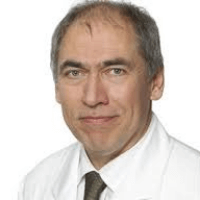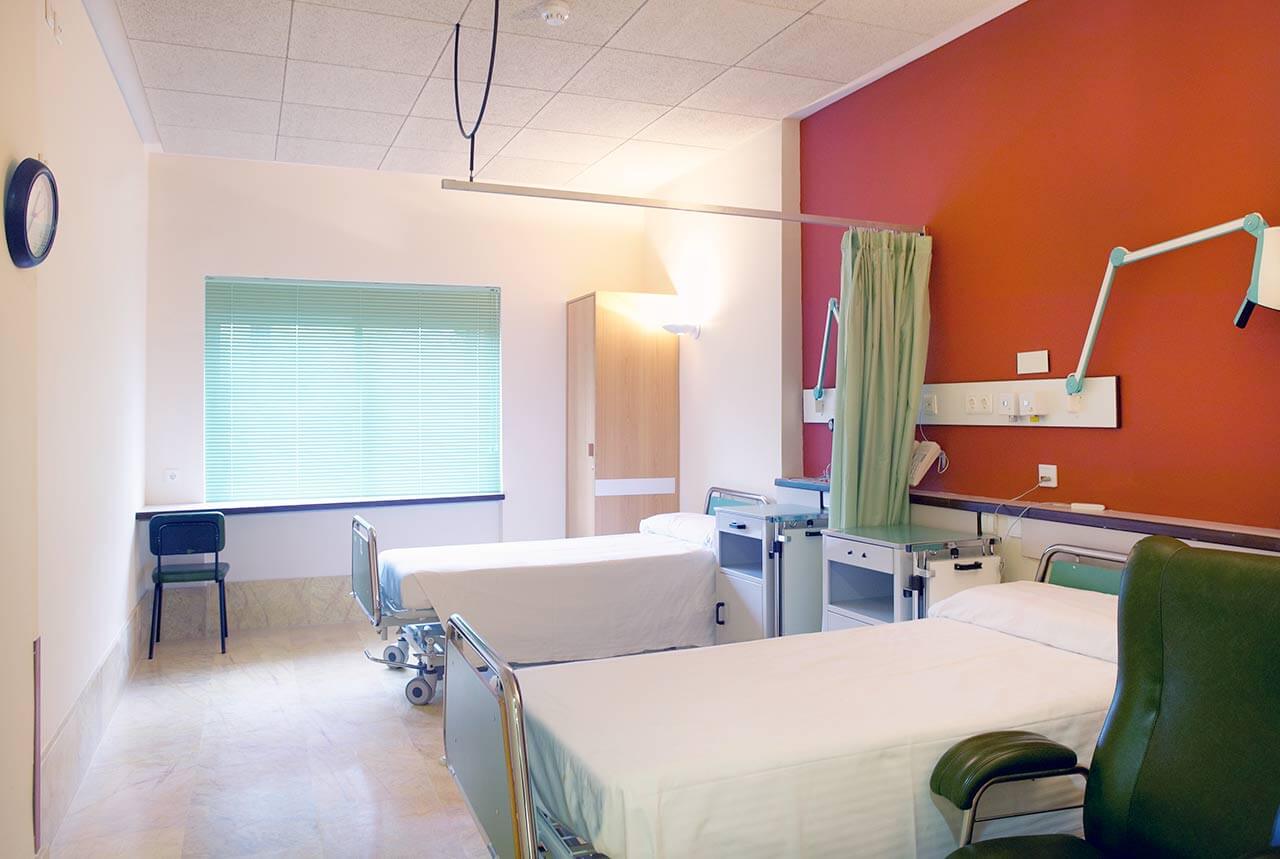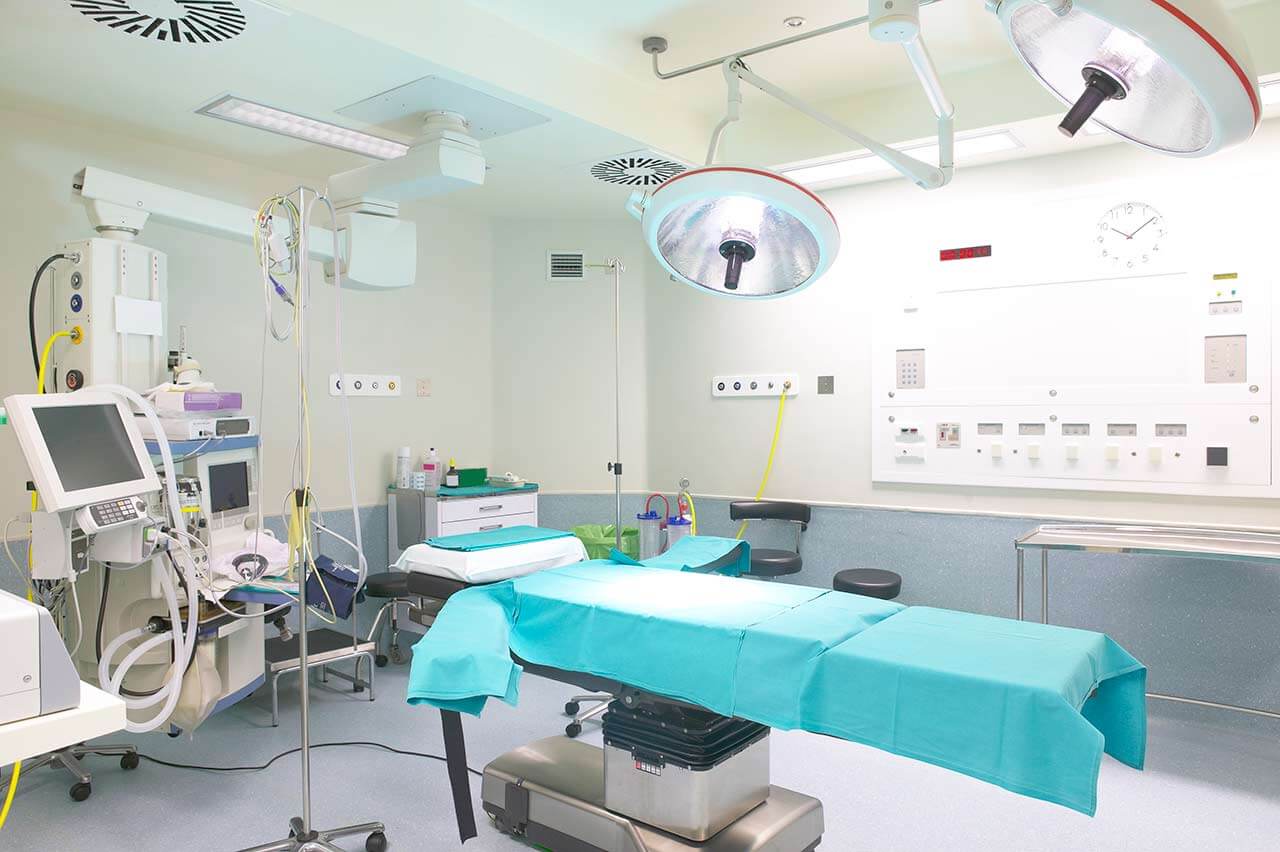
The program includes:
- Initial presentation in the clinic
- clinical history taking
- review of medical records
- physical examination
- laboratory tests:
- complete blood count
- biochemical blood test
- inflammation markers (CRP, ESR)
- blood coagulation analysis (aPTT, PT, INR)
- ophthalmological examination:
- slit lamp examination
- pupil examination
- ocular motility examination
- ophthalmoscopy
- perimetry (visual field test)
- computer perimetry
- visometry (without correction and with correction)
- keratometry
- pachymetry
- refractometry (objective, subjective, cycloplegic)
- autorefractometry
- non-contact tonometry
- fluorescein angiography (if indicated clinically)
- optical coherence tomography OCT (if indicated clinically)
- gonioscopy
- photokeratoscopy
- doppler ultrasound of the retinal vessels
- nursing services
- consultation of related specialists
- treatment by chief physician and all leading experts
- explanation of individual treatment plan
Required documents
- Medical records
- Retinal fluorescein angiography (if available)
- Optical coherence tomography (if available)
Service
You may also book:
 BookingHealth Price from:
BookingHealth Price from:
About the department
The Department of Adult and Pediatric Ophthalmology at the Hospital Cologne-Merheim is one of the best German medical centers in the field of its competence. The department provides the full range of modern medical services for the diagnostics and treatment of eye diseases in patients of all age groups. For the provision of optimal medical care, the department has special outpatient clinics and state-of-the-art operating rooms with all necessary equipment, including microscopes and laser systems. The department has an advanced Eye Bank, thanks to which patients can receive suitable donor material in the shortest possible time. The department successfully practices innovative treatment using stem cell transplants. The medical facility also possesses vast experience in performing intravitreal injections for macular edema, macular degeneration, and retinal vascular pathologies. Of particular interest in the field of pediatric ophthalmology is the treatment of young patients with strabismus and retinopathy of prematurity. The department has 32 beds for patient stay. However, many therapeutic procedures and operations are performed on an outpatient basis. The department's source of pride is its excellent diagnostic equipment, including the Pentacam device, HRT III system with corneal module, corneal pachymetry device, Humphrey visual field analyzer, and other devices.
The Head Physician of the department is Prof. Dr. med. Dr. h.c. Norbert Schrage. According to the Focus magazine, the specialist ranked among the top German doctors specializing in retinal diseases, corneal pathologies, and diabetic retinopathy for many years in a row!
As a rule, the diagnostics are performed on an outpatient basis. Depending on the patient's complaints, doctors conduct a general examination, refractometry (objective assessment of vision refraction), visual field tests, fluorescence angiography, optical coherence tomography, corneal examinations with Pentacam, etc. The department's ophthalmologists work with state-of-the-art diagnostic equipment, thanks to which they accurately detect the slightest pathological changes in the eye apparatus and visual disorders.
One of the department's priorities is cataract surgery. When performing the operation, the specialists remove the clouded lens and implant a special intraocular lens, replacing its functions. In most cases, the surgical procedure is performed on an outpatient basis under local anesthesia with eye drops. A patient does not experience any pain but may experience discomfort. In certain situations, operations may be performed under general anesthesia but after additional examinations (complete blood count, ECG, and X-ray scans). Prior to surgery, the attending physician explains its peculiarities and carries out the necessary preparation. Eye recovery takes about 4-6 weeks. Immediately after surgery, the patient may experience a burning sensation or foreign body, but this feeling disappears soon.
Another common condition that the department's ophthalmologists often deal with is glaucoma, the cause of which is high intraocular pressure. Conservative methods, such as eye drops, may be effective in the early stages of the disease. If conservative treatment does not give positive results, doctors resort to surgery. A short-term hospital stay is required to confirm the indications for surgery, during which the dynamics of intraocular pressure levels are monitored over a day. During the operation, a drainage pathway is formed under the conjunctiva to drain fluid from the eyeball. Due to the persistent increase in intraocular pressure, this is a rather complicated procedure that requires specific professional training. About 2-3 weeks before surgery, the patient stops using anti-inflammatory eye drops and hypotensive drugs containing acetazolamide (only under the ophthalmologist's prescription). It is also necessary to stop taking anticoagulants (for example, Marcumar or aspirin) beforehand. As a rule, the operation is performed under general anesthesia.
The department also excels in corneal transplant surgery. In some cases, this procedure is the only method to restore vision in cases of corneal opacity, severe corneal deformities, etc. The department closely cooperates with the Aachen Center for Technology Transfer in Ophthalmology for donor material harvesting and processing. When performing corneal transplant surgery, the department's ophthalmologists consider the following three decisive factors: high quality of the corneal graft (in accordance with the standards of German Eye Banks), proper preparation of the operating field, and even suturing of the corneal graft. In addition, patients remain under close monitoring after surgery to exclude graft rejection or, if this complication develops, the specialists ensure timely treatment. For postoperative monitoring, the department has highly specialized technical resources, including combined systems for corneal topography and pachymetry, manual and automatic keratometers, confocal scanning laser endothelial microscopes, ultrasonic pachymetry devices, and others. The department's specialists have long experience in the treatment of the most complex corneal diseases and lesions (for example, acid burns, severe traumas, and keratoconus), so they guarantee the best treatment results.
The team of pediatric ophthalmologists is responsible for assessing visual acuity and treating vision impairments and eye conditions in young patients, including newborns. The department's doctors most often deal with the treatment of strabismus. In some cases, strabismus can be eliminated with the help of special glasses, prism lenses, and other auxiliary means. However, patients with severe forms of strabismus are almost always indicated for corrective surgery, the purpose of which is to strengthen or weaken one of the eye muscles, thanks to which the visual balance will be restored. Full recovery after corrective surgery takes about a week.
The department's clinical focuses include:
- Cataract surgery
- Glaucoma surgery
- Surgery for vitreous and retinal diseases
- Laser vision correction (refractive eye surgery)
- LASIK technique
- Photorefractive keratectomy (PRK)
- Intraocular lens implantation
- Intravitreal injections for macular diseases
- Keratoplasty and corneal replacement surgery (corneal transplant surgery)
- Treatment of chemical burns of the eye and its appendages
- Laser treatment for retinal diseases
- Laser treatment for secondary cataracts
- Intraocular tumor removal (for example, choroidal melanoma)
- Surgery for eyelid tumors and defects, including plastic surgery
- Surgery for orbital pathologies
- Strabismus correction in adults and children
- Surgery for retinopathy of prematurity
- Other medical services
Curriculum vitae
Higher Education
- 1984 Medical studies at the University of Cologne.
- 1986 Medical studies at RWTH Aachen University.
- 1989 Third State Medical Examination, RWTH Aachen University.
- 1990 Doctorate, Faculty of Medicine at RWTH Aachen University.
Clinical and Scientific Career
- 1989 Research Fellow, Department of Ophthalmology at the University Hospital RWTH Aachen.
- 1990 Assistant Physician, Department of Ophthalmology, University Hospital RWTH Aachen.
- 1991 Admission to medical practice.
- 1994 Research Internship in Aarhus, Denmark.
- 1995 Senior Physician, Department of Ophthalmology, University Hospital RWTH Aachen.
- 1996 Establishment of a Separate Working Group "Keratoprosthesis Implantation".
- 1997 Habilitation and Venia legendi in Ophthalmology, Faculty of Medicine, RWTH Aachen University.
- 1997 Managing Senior Physician in the Department of Ophthalmology, University Hospital RWTH Aachen.
- 1998 Founding of the Aachen Center for Technology Transfer in Ophthalmology as an independent research institution under contract with RWTH Aachen University and various research institutions.
- 2001 - 2003 Acting Head of the Department of Ophthalmology, University Hospital RWTH Aachen.
- 2002 Extraordinary Professorship for Ophthalmology, RWTH Aachen University.
- 2003 Head of the Department of Ophthalmology, RWTH Aachen University.
- Since 2004 Head of the Department of Adult and Pediatric Ophthalmology at the Hospital Cologne-Merheim.
- 2007 Foundation of Eye Bank Cologne in Merheim.
Honors
- 2014 Honorary Doctorate from Pirogov Russian National Research Medical University.
- 2010 - 2016 Repeated ranking in the Focus magazine as top-class specialist in the treatment of retinal diseases.
Qualifications
- 1995 Board certification in Ophthalmology.
- 2016 Certified Research Fellow for clinical trials of medications.
- Examiner for the Second and Third State Medical Examinations.
- Certified Research Fellow for preclinical studies.
- Authorized Laser Safety Officer.
- Certified Specialist in ultrasound diagnostics, laser surgery, surgical ophthalmology, and photodynamic therapy.
- Permission for intravitreal injections (Association of Ophthalmic Surgeons, VOA).
Research Interests
- Anterior and posterior eye segment microsurgery.
- Obtaining biomaterials and medical care optimization for patients with eye diseases.
Photo of the doctor: (c) Kliniken der Stadt Köln gGmbH
About hospital
According to the reputable Focus magazine, the Hospital Cologne-Merheim ranks among the top German medical centers!
The health facility is an academic hospital of Witten/Herdecke University, which gives patients access to the very latest developments in European medicine. The Hospital Cologne-Merheim positions itself as a maximum care medical center, which is why it offers a wide range of high-quality medical services. The hospital has 752 beds in 13 specialized departments. More than 28,000 inpatients are treated here every year. Outpatient care is also provided for many medical specialties. The hospital also collaborates closely with the University Hospital Cologne, carrying out fruitful work at the Transplant Center.
The most successful areas of clinical practice in the medical center are neurosurgery, pulmonology, transplantology, surgery (in particular, minimally invasive), cardiology, traumatology, joint replacement surgery, and plastic surgery. The Departments of Ophthalmology, Anesthesiology, Radiology, Neuroradiology, and Palliative Care are also distinguished by top-class medical service. In addition, the Departments of Neurology and Neurosurgery provide effective early rehabilitation programs for patients with stroke, traumatic brain injuries, brain tumors, and other neurological diseases. Comprehensive treatment of such a level is available only at highly specialized and best medical facilities in Germany.
The hospital has several ultramodern intensive care units, where patients in critical condition are treated.
It is worth noting that the hospital was the first in the region to be certified in accordance with KTQ® (Cooperation for Transparency and Quality in Health Care). The certification process is repeated every three years, and each time the hospital passes it with excellent results.
The basis for high-quality medical services lies in state-of-the-art equipment, the application of effective and reliable therapeutic methods, and the vast clinical experience and professionalism of doctors and nursing staff. The main value for each employee at the hospital is the patient's health. Doctors devote enough time to personal communication with patients in order to establish a trusting relationship and explain the details of upcoming treatment.
Photo: (с) depositphotos
Accommodation in hospital
Patients rooms
The patients of the Hospital Cologne-Merheim live in single and double rooms. All patient rooms are cozy and designed in light colors. Each patient room has an ensuite bathroom with a shower and a toilet. The furnishings of a standard patient room include an automatically adjustable bed, a bedside table with a pull-out tray, a wardrobe for personal belongings, a table and chairs for receiving visitors, a TV, and a telephone. Wi-Fi is also available in the patient rooms.
If desired, patients may stay in an enhanced-comfort room, which additionally provides a safe, a mini-fridge, and upholstered furniture.
Meals and Menus
The patients are offered three tasty and healthy meals a day: breakfast, lunch, and dinner. Breakfast and dinner are served as buffets, and for lunch, there is a set of three menus to choose from.
If, for some reason, you do not eat all the foods, you will be offered an individual menu. Please inform the medical staff about your dietary preferences prior to treatment.
Further details
Standard rooms include:
Religion
There is a chapel on the territory of the hospital, where Catholic and Evangelical worship is regularly held on Sundays and religious holidays. The chapel is also open daily for visits and solitude for prayers.
The services of representatives of other religions are available upon request.
Accompanying person
Your accompanying person may stay with you in your patient room or at the hotel of your choice during the inpatient program.
Hotel
You may stay at the hotel of your choice during the outpatient program. Our managers will support you for selecting the best option.




